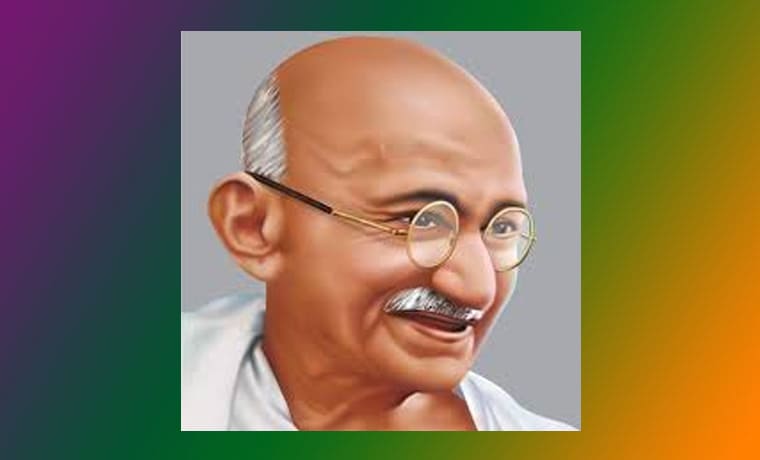Discover the pioneers and originators of various fields in India, from ‘who is the father of Inda’ to the father of modern education. This comprehensive guide answers all your questions about the key figures who shaped India’s history and development.” Let’s explore the Fathers of various fields of activism and branches of knowledge below.
Who is the Father of India?
Q: Who is called the father of journalism in India’s freedom struggle?
Ans: James Augustus Hickey is considered the father of journalism in India’s freedom struggle. He started the Bengal Gazette in 17801.
Q: Who was known as the father of the Indian revolution?
Ans: Bal Gangadhar Tilak is known as the father of the Indian revolution.
Q: Who is called the father of modern India?
Ans: Raja Ram Mohan Roy is called the father of modern India.
Q: Who is called the ‘father of Indian planning’ and why?
Ans: M. Visvesvaraya is called the ‘father of Indian planning’ because of his significant contributions to the economic planning and development of India.
Q: Who is the father of India?
Ans: Mahatma Gandhi is considered the father of India.
Q: Who was called the father of modern India?
Ans: Raja Ram Mohan Roy was called the father of modern India.
Q: Who discovered the name of India?
Ans: The name “India” is derived from the River Indus, which was historically referred to as “Sindhu” by the ancient Indians.
Q: Who is called the father of Indian metallurgy?
Ans: P. N. Bose is called the father of Indian metallurgy.
Q: Who is known as the father of the Indian Renaissance?
Ans: Raja Ram Mohan Roy is known as the father of the Indian renaissance.
Q: Who is called the father of modern India?
Ans: Raja Ram Mohan Roy is called the father of modern India.
Q: Who is considered as the father of modern India?
Ans: Raja Ram Mohan Roy is considered as the father of modern India.
Q: Who is known as the father of the Indian constitution?
Ans: Dr. B. R. Ambedkar is known as the father of the Indian constitution.
Q: Who is called the father of Indian economic reforms?
Ans: Dr. Manmohan Singh is called the father of Indian economic reforms.
Q: Who is the father of Indian mathematics?
Ans: Aryabhata is considered the father of mathematics in India.
Q: Who used the name India first?
Ans: The name “India” was first used by the ancient Greeks.
Q: Who is the father of Hindi?
Ans: Bharatendu Harishchandra is considered the father of Hindi literature.
Q: Who is the father of the Indian computer?
Ans: Dr. Vijay Bhatkar is known as the father of the Indian computer.
Q: Who is known as the father of Indian missile technology?
Ans: Dr. A. P. J. Abdul Kalam is known as the father of Indian missile technology.
Q: Who is called the father of Indian economic planning?
Ans: M. Visvesvaraya is called the father of Indian economic planning.
Q: Who is known as the father of the Indian constitution?
Ans: Dr. B. R. Ambedkar is known as the father of the Indian constitution, which in Hindi is “भारतीय संविधान के जनक”.
Q: Who is called the father of civil services in India?
Ans: Charles Cornwallis is called the father of civil services in India.
Q: Who is known as the father of modern education in India?
Ans: Lord William Bentinck is known as the father of modern education in India.
Q: Who is the father of the Indian nation?
Ans: Mahatma Gandhi is considered the father of the Indian nation.
Q: Who is called the father of the green revolution in India?
Ans: Dr. M. S. Swaminathan is called the father of the green revolution in India.
Q: Who is called the father of militant nationalism in India?
Ans: Bal Gangadhar Tilak is called the father of militant nationalism in India.
Q: Who is the national father of India?
Ans: Mahatma Gandhi is considered the national father of India.
Q: Who is called the father of the Indian navy?
Ans: Chhatrapati Shivaji Maharaj is known as the father of the Indian navy.
Q: Who is known as the father of the Indian constellation?
Ans: Aryabhata is known as the father of Indian astronomy.
Q: Who is called the father of modern Indian political thought?
Ans: Raja Ram Mohan Roy is called the father of modern Indian political thought.
Q: Who is called the father of the Indian space program?
Ans: Dr. Vikram Sarabhai is called the father of the Indian space program.
Q: Who is known as the father of Indian economics?
Ans: Dadabhai Naoroji is known as the father of Indian economics.
Q: Who is called the father of the white revolution in India?
Ans: Dr. Verghese Kurien is called the father of the white revolution in India.
Q: Who is called the father of Indian archaeology?
Ans: Alexander Cunningham is called the father of Indian archaeology.
Q: Who is known as the father of the renaissance of western India?
Ans: Mahadev Govind Ranade is known as the father of the renaissance of western India.
Q: Who is called the father of Indian medicine?
Ans: Charaka is called the father of Indian medicine.
Q: Who was called the father of Indian unrest?
Ans: Bal Gangadhar Tilak was called the father of Indian unrest.
Q: Who is known as the father of Indian miniature painting?
Ans: Miskin is known as the father of Indian miniature painting.
Q: Who is called the father of cricket in India?
Ans: Ranjitsinhji is called the father of cricket in India.
Q: Who is considered the father of modern education in India?
Ans: Lord William Bentinck is considered the father of modern education in India.
Q: Who is called the father of Indian civil service?
Ans: Charles Cornwallis is called the father of Indian civil service.
Q: Who is called the father of the Indian economy?
Ans: Dadabhai Naoroji is called the father of the Indian economy.
Q: Who is known as the father of all India services?
Ans: Sardar Vallabhbhai Patel is known as the father of all India services.
Q: Who is known as the father of Indian history?
Ans: Kalhana is known as the father of Indian history.
Q: Who is known as the father of Indian prehistory?
Ans: Robert Bruce Foote is known as the father of Indian prehistory.
Q: Who is called the father of local self-government in India?
Ans: Lord Ripon is called the father of local self-government in India.
Q: Who is known as the father of modern Indian painting?
Ans: Raja Ravi Varma is known as the father of modern Indian painting.
Q: Who is called the father of GST in India?
Ans: Dr. Vijay Kelkar is called the father of GST in India. 0 0 0
Why Mahatma Gandhi is Called the ‘Father of the Indian Nation’?
Mahatma Gandhi, born Mohandas Karamchand Gandhi, is widely recognized as the ‘Father of the Indian Nation.’ This title is not just a ceremonial honor but a testament to his pivotal role in India’s struggle for independence and his enduring influence on the nation’s identity and values. Here are the key reasons why Gandhi is bestowed with this revered title:
1. Leadership in the Independence Movement
Gandhi’s leadership in the Indian independence movement was unparalleled. He spearheaded numerous campaigns against British colonial rule, including the Non-Cooperation Movement, the Civil Disobedience Movement, and the Quit India Movement. His ability to mobilize millions of Indians from diverse backgrounds and unite them under a common cause was instrumental in the eventual success of the independence struggle1.
2. Philosophy of Non-Violence (Ahimsa)
One of Gandhi’s most significant contributions was his unwavering commitment to non-violence, or Ahimsa. He believed that non-violent resistance was the most powerful weapon against oppression. His philosophy of Satyagraha (truth force) emphasized the power of truth and non-violent protest to achieve social and political change. This approach not only galvanized the Indian population but also inspired global movements for civil rights and freedom.
3. Social Reforms and Advocacy
Gandhi was not just a political leader but also a social reformer. He campaigned against various social evils such as untouchability, caste discrimination, and gender inequality. His efforts to promote social harmony, uplift the marginalized sections of society, and advocate for the rights of women and the poor were crucial in shaping modern Indian society.
4. Personal Sacrifice and Dedication
Gandhi’s personal sacrifices and dedication to the cause of India’s freedom were profound. He led a simple life, renouncing material possessions and adopting a lifestyle that reflected his principles. His fasts and imprisonment for the cause of independence demonstrated his commitment and inspired millions to join the struggle.
5. Global Influence and Legacy
Gandhi’s influence extended beyond India. His principles of non-violence and civil disobedience influenced global leaders and movements, including Martin Luther King Jr. in the United States and Nelson Mandela in South Africa. His legacy continues to inspire movements for justice, peace, and human rights around the world.
6. Recognition by Peers and the Nation
The title ‘Father of the Nation’ was first used by Subhas Chandra Bose in a radio address from Singapore in 1944. Bose, despite his differences with Gandhi, acknowledged his unparalleled contribution to India’s freedom struggle. Following Gandhi’s assassination in 1948, Prime Minister Jawaharlal Nehru also referred to him as the ‘Father of the Nation’ in his radio address.
Conclusion
Mahatma Gandhi’s role in India’s independence, his philosophy of non-violence, his social reforms, and his sacrifices have left an indelible mark on the nation. His legacy as the ‘Father of the Indian Nation’ is a reflection of his profound impact on India’s history and his enduring influence on its values and identity. 0 0 0.







